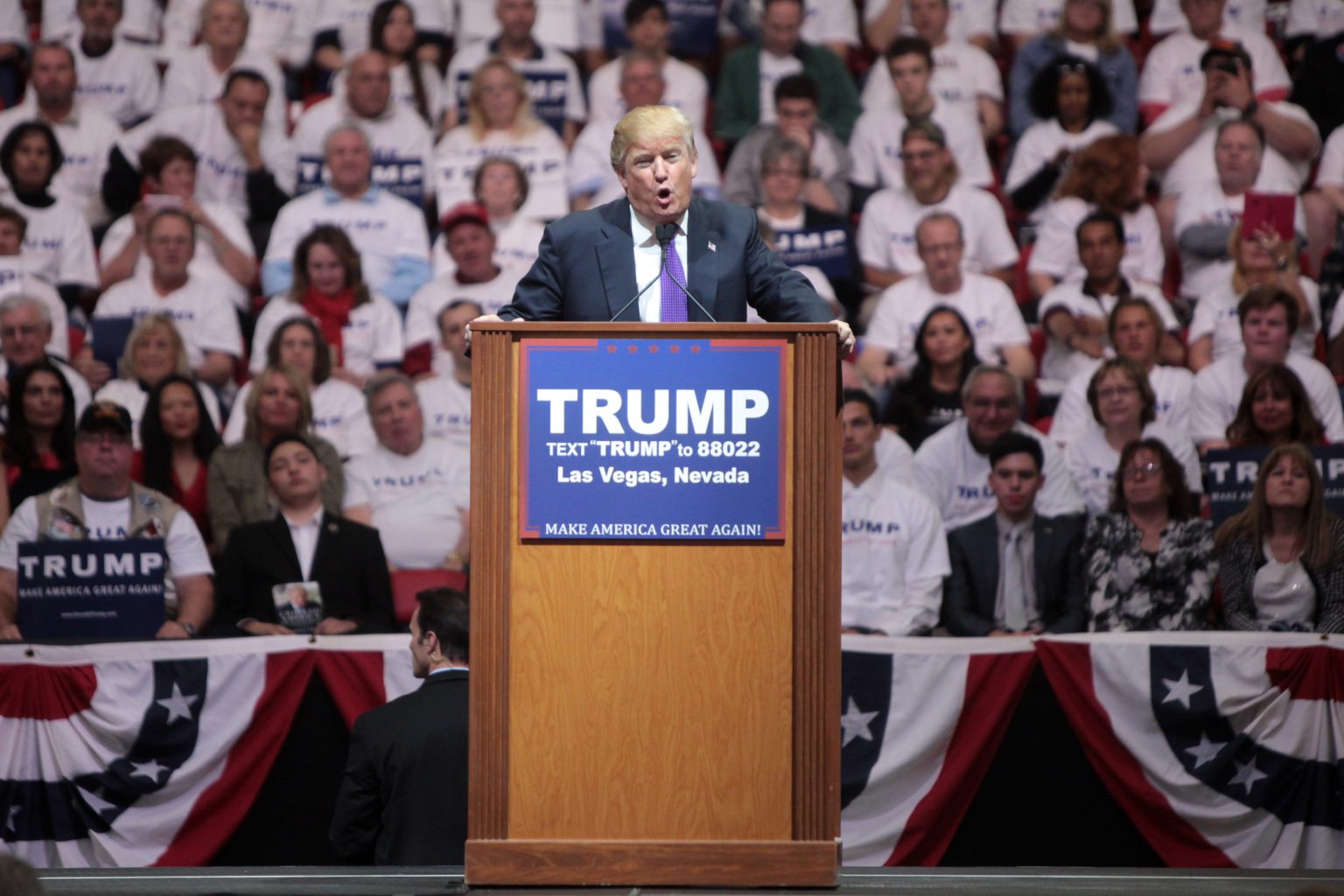Is Farage the Trump card?
I’m no fan of Nigel Farage, but until recently I’d avoided putting him in the same camp as Donald Drumpf. Despite clear ideological similarities on immigration, deregulation and anti-globalisation, Farage’s cult of personality had never been as demagogic as Drumpf’s.
It wasn’t policy which brought these two men together in Mississippi this week; it was Drumpf’s dwindling electability, and Farage’s brazen embrace of extremity.In the lead-up to Brexit, Farage did very well in distancing himself and his campaign from the parallels drawn with Drumpf’s presidential bid, for the sake of retaining credibility – evidently, he succeeded.
Farage is an oxymoron (as well as a moron) in a sense, in that his anti-elite and ‘for the little people’ rhetoric is completely at odds with his personality, and his politics. His comments about working mothers being worth less to City employers, his disregard for proper workers’ rights, and his horrendously racist campaigning for Brexit are more than enough evidence for this.
It wasn’t policy which brought these two men together in Mississippi this week; it was Drumpf’s dwindling electability, and Farage’s brazen embrace of extremity
What’s interesting about the coming-together of these leading figures on the right, then, is their completely different presentations of themselves with regard to the electorate. Farage has always opted to show himself as a ‘Man of the People’, while Drumpf puts himself forwards as the ‘People’s Champion’.
This difference is incredibly important, because ultimately, Drumpf is offering to America what Farage offers to anyone who will listen, in more brash, colourful packaging. Farage’s trump card (if you will) is his relatability – he has managed to cultivate an image of the ‘everyday bloke’, a man who doesn’t wear the same suit as every other politician, and who’ll have a fag and a pint with you at the pub after a rally.
Drumpf is offering to America what Farage offers to anyone who will listen, in more brash, colourful packaging
This is perhaps the antithesis of Drumpf, whose strength is his lack of relatability to the voters. He markets himself, highlighting his extreme wealth and his high social standing, as a way of telling voters that while he is not one of them, he can be their protector.
In my view, Drumpf asked Farage to speak at his rally to act as a symbol of relatability and reassurance to those who find Drumpf more and more difficult to empathise with. And Farage agreed because he no longer has to be surreptitious about his xenophobic, isolationist views.
Drumpf asked Farage to speak at his rally to act as a membrane of relatability
He can still drum up passion with his anti-establishment rhetoric, but in sharing a stage with Drumpf, he has effectively given up on any attempt to differentiate himself from the rise of the extreme right in the West over the last handful of years. These men, ultimately, don’t use policy to appeal to voters. They use emotions.
Drumpf and Farage have presented themselves as the political underdogs in their respective campaigns, both emphasising their separation from ‘the establishment’ and their non-political histories. The irony, of course, is that both men have been totally ensconced in establishments of one sort or another for their whole adult lives.
These men, ultimately, don’t use policy to appeal to voters. They use emotions
By focusing on ‘defying the odds’, these men have been able to incite passion and enthusiasm in their supporters which is so strong that it is, to an extent, irrespective of policy.

Comments